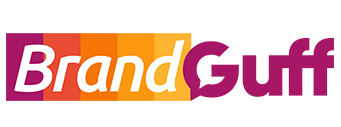
Nepal Advertisement Board committed to bring transparency to the advertising industry; Guff with Mr. Laxman Humagain
BrandGuff has been relentlessly working to bring awareness on corporate and media malpractice in respect to violation of the Advertisement Act(2019). The government has sanctioned an independent regulatory body, Nepal Advertisement Board. To gauge the current state of affairs in regards to enforcement of the Advertisement Act(2019), BrandGuff conducted an interview with the chairperson of the Nepal Advertisement Board, Mr. Laxman Humagain. The Board recently released its code of conduct. Here is the excerpt of the interview With Mr. Humagain that specifically focuses on the opportunities and challenges of the Board’s code of conduct:
Why did the government feel the need for the code of conduct?
Before the Nepal government decided to form an independent autonomous advertising board, the concerned stakeholders in regards to the advertisement sector were fragmented. Media, advertisers and agencies had separate code of conducts and ‘requirements’. With the formation of an independent and overarching regulatory body, we felt the need to come up with a consensual code of conduct that encompasses all concerned stakeholders i.e. that includes advertisers, agencies, media, consumers and the government. We believe that this will help form uniformity in the advertising sector.
What authority does the board have? In other words, are the code of conduct legally binding towards the concerned stakeholders? Also, do you have legal mechanism to enforce the code and sanction the transgressors?
The Advertisement Act( 2019) already has legal provisions to sanction transgressors. We envisage our code of conduct as more or less an iteration of ‘soft’ law backed by solid codified laws under the Advertisement Act(2019). Initially, we want to leverage our autonomy to bring about behavioral change amongst the concerned stakeholders. For now, we are focused more on serving cautionary warnings to those who violate our code. That said, we are fully equipped with punitive powers to go as far as to sanction/ fine or bring a law suit. Our goal is to foster the industry. Ergo, we want to focus our energy on behavioral change for now rather than pursuing stringent punitive action.
What positive impacts do you think will enforcing this code of conduct will have to the concerned stakeholders and marketing/ advertising industry in general?
One of the main issue we want to tackle in regards to the advertising industry in Nepal is to foster transparency. We are confident that enforcing the code of conduct will help bring transparency regarding TRP, media circulation rate, billing, revenue reporting etc. We had multiple meetings with concerned stakeholders, especially from the media and advertisers before finalizing the code of conduct. We forwarded an initial draft to them and revised it taking cognizance of the various issues that the stakeholders wanted to be addressed. We understand, bringing in 5 different stakeholders to a common consensus takes compromise on all sides. However, we are proud of the fact that the final draft has been received well by all.
There are multiple cases of news media still broadcasting objectionable ads like that of liquor brands. Also, there are few brands and media houses who have been airing foreign ads dubbed in Nepali. What do you have to say towards that?
When it comes to advertisement of liquor products, as of now the mandate to enforce ban on these products rests on Health ministry. Prohibition of liquor marketing legally comes under the Public Health Act’s mandate. We have already started our homework to bring this mandate under Nepal Advertisement board. Meanwhile, we have forwarded letter of request to the health ministry to take care of this matter as we move towards legislative changes too.
Regarding clean feed, we have started enforcing it. Recently, we sent letters to two advertisers who were found to have violated this policy. As of now, they have ceded airing foreign ads. However, we have yet to decide on punitive action. We have invited them to discuss and explain their concerns. As I said earlier, we hope to use the board as a soft law enforcement mechanism. Unless we find repeated and erroneous act, we hope our ‘soft’ model will be enough.

The code of conduct states that each and every ad should be pre-verified with the board before broadcast? How feasible do you think this is for small scale businesses advertising on social media platforms?
Enforcing this code with mainstream media won’t be difficult since it is logistically feasible. We understand that combing each and every social media ads is not logistically viable. However, we still insist that all advertisers, irrespective of their size and the platforms verify their ads with us. We are not charging exorbitant charge for verification, and so far have enough human resource to deliver our verdict fast. While we are not pursuing punitive action against small scale advertisers who are advertising without permission from us for now, we believe this code is necessary to be able to legally pursue action if ads are found to have violated our laws.
The code also puts prohibition on foreign currency transaction for ad purposes. However, almost all big brands including financial institutions have been posting ads on foreign platforms? What is your take on this?
We understand that with globalization and the increasing importance of platforms like Facebook, Twitter, it does not make sense to put total ‘prohibition’. Social media presents unique opportunities especially to young entrepreneurs. We are aware of the fact that big brands are already doing foreign transactions to put ads on social media. For now we want to collect data on what exactly is happening online. As of now, Nepal government has no idea about the level of financial transactions being done on social media. We are doing feasibility study on registering foreign social media platforms like Facebook and Twitter in Nepal. Since, they aren’t registered as of now, it has led to big losses in terms of tax remuneration of the government. Also, advertisers have had to resort to unethical means of making payments to them. In short, we understand the need for digital marketing, however, we need to carry out proper study in order to regulate it. We hope to bring about a comprehensive code in regards to digital marketing within a year.
What does the second phase of the Board encapsulate?
Having passed a comprehensive code of conduct, we are currently focusing on codifying a national advertisement policy. We have been taking feedback from the concerned parties the same way we did for the code of conduct. We have presented a draft resolution already to the the ministry and expect to have a concrete advertisement policy tabulated within a year. However, this will need to go through the ministry as the mandate lies with the ministry as of now. We expect the ministry to hand the mandate to us too.
What suggestions/ advice/ requests do you have for media houses and advertisers?
The code of conduct has been brought for the benefit of concerned stakeholders. Collective effort helped us bring this code of conduct. We expect the same level of collective effort for successfully implementing it. For this, we need you to register with us, be transparent about your financial transactions, and stick to your rates. Transparency will help invigorate the whole industry and truly make it a free and open market. We expect, and are hopeful we will receive, your co-operation. Advertisement Board is committed to listening to your concerns and make necessary rectifications as needed. However, I would also like to stress that while we expect co-operation, be sure that we won’t hesitate to take punitive actions when needed.




